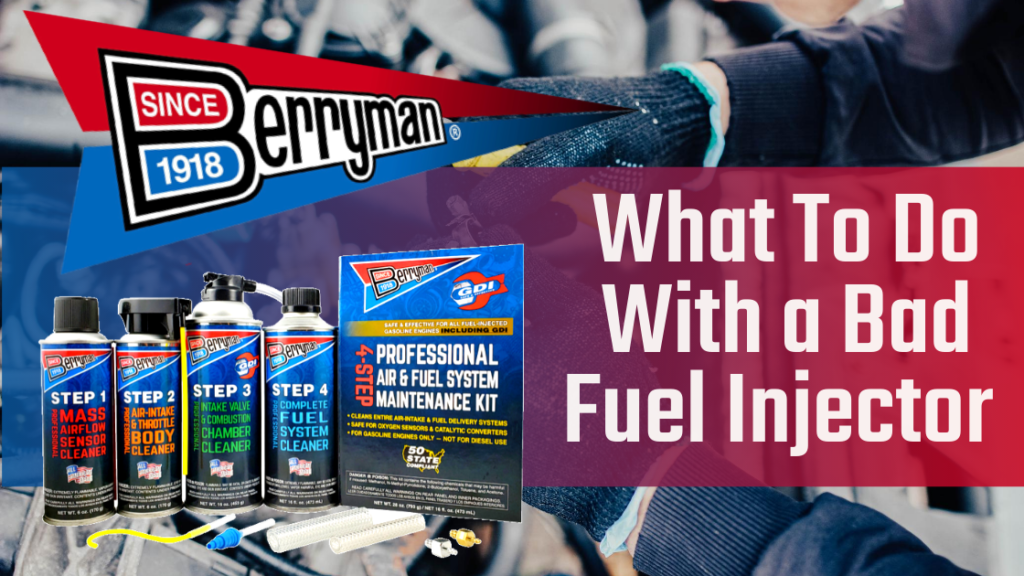A clogged fuel system can surely put a wrench in your getup and cause your fuel mileage to take a hit. If your fuel system is dirty, you may struggle to get the mileage your vehicle is capable of. Over time, this can cause major complications.
It can be as simple as your engine working harder than normal because you have to go up hills more often. Or even if your weather is on the hotter side and your car doesn’t have the time to cool down before turning off.
By knowing what can cause there to be buildup in your fuel injectors, you can keep them cleaner longer.
Clogged Fuel System Causes
- Fuel or Exhaust Residue
When the engine cools down, the gases that were vaporized settle on the fuel chamber. Over time, this causes buildup within the fuel system. Though this isn’t exactly avoidable, it may be wise to allow sufficient time for the engine to cool down before shutting it off.
- Injector Impurities
Heat within the cooling cylinders can cook the debris and impurities into the injectors making it harder to clean.
- Dirty Gasoline
Various types of debris can clog up fuel injectors due to the fuel system itself, as well as gas. Impure gasoline is not as common today, but debris can still sneak in and build up.
- Leftover Water
Any water leftover in the chamber can cause corrosion that the debris could get caught in.
Signs of a Bad Fuel Injector
Proper maintenance of your fuel system is critical to the long-term function of your car, so you need to be able to identify when something is wrong. When it’s time to clean your fuel injector, you should notice your engine misfiring or the feeling that your car will stall when you stop.
You’ll also find there is low power and a poor fuel efficiency. Other common signs are that the check engine light will be on, it’ll struggle to start, and there may be a fuel smell due to a leak.
If there is a leak, you should have your vehicle looked at by a technician as soon as possible. All of these signs are caused by a mishap with your fuel; either too much or not enough fuel is being delivered to the engine.
- Engine Misfire
This happens when a clogged injector keeps your engine from getting enough fuel thus resulting in a misfire; a popping sound. The larger the engine, the less likely you’ll feel it when it misfires.
- Stalling or rough idling
The clogging can cause your vehicle to not get enough quantity of fuel or an uneven supply. This results in the RPM to decrease below the optimal level leading to a rough idle. And if the RPM gets too low, the car will stall.
- Low Power
The engine is not able to produce enough power to run.
- Poor Fuel Efficiency
Your vehicle may struggle to get the mileage it is capable of if your fuel system is dirty. Fuel is either wasted by leaking or being used unevenly.
- Check Engine Light is On
An incomplete and uneven fuel burn will prompt the check engine light to turn on.
- Fuel Smell
Leaking fuel will emit a distinguishable smell. A fuel leak is a potential fire hazard so it is NOT something to put off.
How to Test Fuel Injectors
There are a few ways to test your fuel injectors: the Listening or Clicking Test, the Voltage Test, Leak Test.
Here is how to perform each:
- Listening/Clicking Test
Start the engine and allow it to idle.
Keep the engine running and touch the end of a long metal screwdriver against the fuel injector.
Put your ear at the other end of the screwdriver.
If there is a clicking sound, your injector is working. If you don’t hear a click, it could mean your injector is faulty or clogged.
- Voltage Test
You can check whether a fuel injector is functioning properly with a volt meter or test light tool.
Make sure your injector is cold, because a hot injector could produce a false reading.
Turn the ignition key on but do not start the car.
Connect the volt meter or test light to the negative side of the battery.
Unplug it and read the meter for the manufacturers ohm specs. If it doesn’t meet the specifications, there’s a problem.
- Leak Test
Last but not least, this test only requires your eyes and nose.
Smell for fuel and look to see if there are any visible leaks or drips.
Conclusion
Buildup in your fuel system isn’t avoidable, but with this knowledge, you’ll be able to keep it clean for longer.
Fuel additives such as Berryman B12 Chemtool work to prevent and dissolve build-up within your fuel system.
And when you need to put a little extra love into your fuel system, our 4-Step Professional Air & Fuel System Maintenance Kit cleans all major air-intake and fuel system components in fuel-injected, gas-powered vehicles. This includes modern GDI and turbocharged engines. Some things you might see improve: 1.) hard starting, 2.) rough idle, 3.) poor fuel economy, and 4.) overall drivability!
Try it out and let us know what you think. You can reach out to us on Facebook, Instagram and/or our Twitter profile!

